Gluay Hom is an Asian elephant. He used to live in a concrete enclosure at a zoo near Bangkok, Thailand. He was chained by his right leg, and taught to do tricks for tourists. His hindquarters atrophied from disuse, his front leg was swollen from the chain, his feet were rendered smooth by the flooring. His body was covered with wounds from lying on the concrete. The 10-year-old youngster had a haunted look in his eyes.

As a nursing toddler, Kabu was tagging along with her mom who was at work at a jungle logging camp. A log rolled out of control and broke Kabu’s front left wrist, which healed wretchedly. Her right front leg was also deformed from overuse due to compensating for the broken leg. Despite her handicap, Kabu was also put to work logging, losing two babies after forced breedings along the way.


Gluay Hom arrived at Elephant Nature Park on August 7, 2019, lucky boy, after a 14-hour ride in the back of a truck. Kabu hobbled off a truck into her new life there at the age of 25 in September, 2015. Both will stay there for life–and elephants can live into their 80s!
Elephant Nature Park, 60km outside of Chiang Mai, Thailand, is populated by many elephants with similar stories of abuse and neglect. This remarkable place was founded in the early 1990s by Lek Chaillert, a visionary woman who set out to change long-standing use (and misuse) of these majestic animals. Hers is a story of passion translated into action. None of her elephants paints or does tricks or gives fun rides. They are, simply, elephants…and that’s entertainment enough. It took time and threats against her life, but Lek has stood her ground and created some lasting changes to antiquated notions of human/elephant interaction. Visitors to her park (and elsewhere, as proof of her methods bears fruit and spreads) can see the elephants for the smart, social, amazing animals that they are.

Her work in the world has mattered. When I look at Lek, I see a small-statured woman with a giant heart and single-minded purpose. She has stood up with great courage to the powerful tourist trade industry in Thailand. Change has come because she persisted. Her elephants live in freedom, roaming the park in family units that morph and evolve when new elephants arrive. While I was there, a new elephant came with her 18-month old toddler. She had known one of the others some 30 years earlier. They clearly remembered one another. Their reunion would have driven the hardest heart to tears of joy.
My two weeks as a volunteer there in 2005 now seem very long ago and far way from the midwestern United States, especially after a year at home fettered by the restrictions of COVID-19. When I was at Elephant Nature Park, the valley was accessible only by a narrow dirt road. Cell service and internet access were not yet reliable, so reaching out wasn’t worth the trouble. It was a Brigadoon time for me, totally magical and memorable. We fed, walked, bathed, and enjoyed being among the couple of dozen elephants. All they had to do was be themselves.

Part of what made being there special for me was that it was still in the era when you couldn’t know everything about a place before going there. It was a happy surprise, finding that quiet valley in 2005 and just hanging out with Lek and the others on the feeding platform. Now, in 2021, the early amateurish efforts to put EMP on the internet map have predictably evolved into a sophisticated website, and in its way, that’s okay. Check it out! You might want to add it to your destination-dreaming as things open up again. Or you can do an armchair visit and avoid getting dust or mud on your clothes: https://www.elephantnaturepark.org.
What a fortunate medium the internet has become for someone like Lek. It’s not all bad for word to filter out to the world community about her life’s work and the impact she has made. Another benefit I hadn’t thought of is that the modern website lets me peek in, after 16 years, and see that indeed, she is still out there, far away, doing the work she set out to do, and making a very big difference in many lives, human and animal. We must all celebrate such unabated, focused effort! It is good and happy for me to revisit a place that meant such a great deal to me long ago, and see that it is thriving. If you get the urge, spend some time someday with Lek and her herd, either electronically or maybe even in person someday! You won’t regret it.

 Kate Dernocoeur considers Planet Earth to be her home, and likes to visit its many different places. This sometimes takes her away from her residence in Vergennes Twp, Michigan, where she enjoys living with her German shepherd dog, Mayzie. When home, she can be found writing or doing any of a number of other jobs (although she did retire reluctantly from firefighting in Jan.2019), or enjoying her passion for horses. See more at www.katedernocoeur.com
Kate Dernocoeur considers Planet Earth to be her home, and likes to visit its many different places. This sometimes takes her away from her residence in Vergennes Twp, Michigan, where she enjoys living with her German shepherd dog, Mayzie. When home, she can be found writing or doing any of a number of other jobs (although she did retire reluctantly from firefighting in Jan.2019), or enjoying her passion for horses. See more at www.katedernocoeur.com

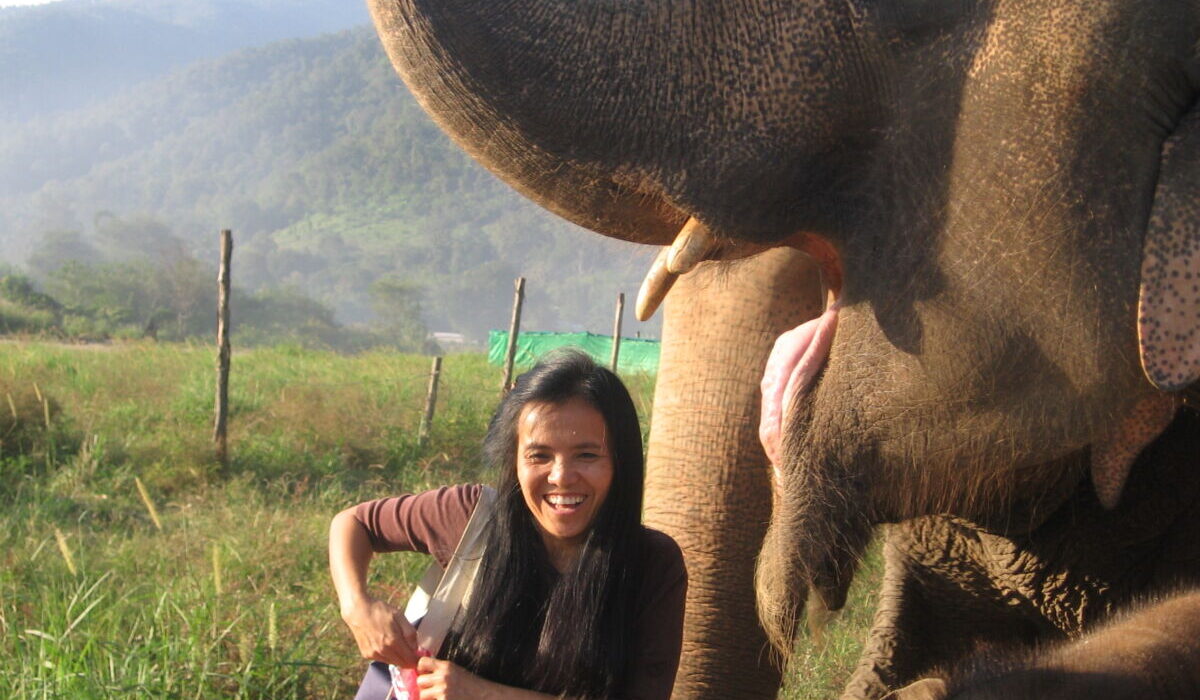

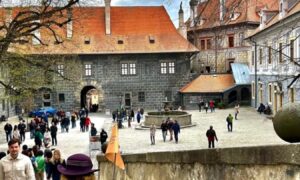
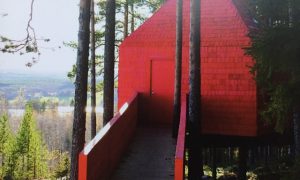
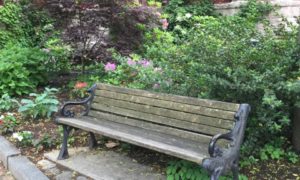
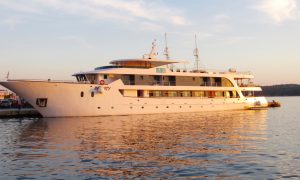
Comments
4 CommentsJudy Bereza
Apr 12, 2021What a wonderful, inspirational story. Thank you Kate for bringing it to us/
Susan J. Smith
Apr 12, 2021Thank you, Judy. I am sure Kate will appreciate your comment.
Yvonne Roussel
Apr 12, 2021This article, especially the photos, brought tears to my eyes, Susan. I have yet to make it to Thailand. If I do someday, I would love to volunteer at the ENP as well. Yvonne R.
Susan J. Smith
Apr 12, 2021Yvonne, I am so glad you enjoyed this blog post by my friend and guest blogger, Kate Dernocoeur. I know she’ll appreciate it. I’ve love to visit ENP as well.